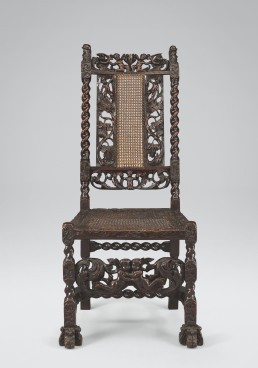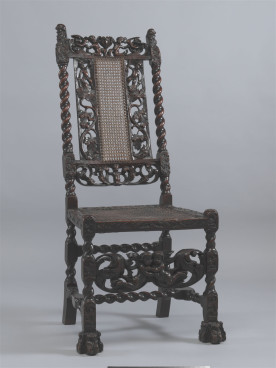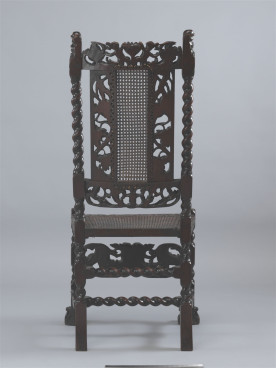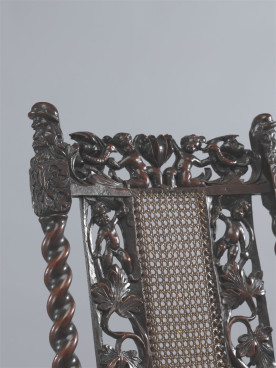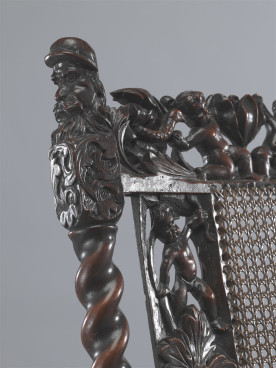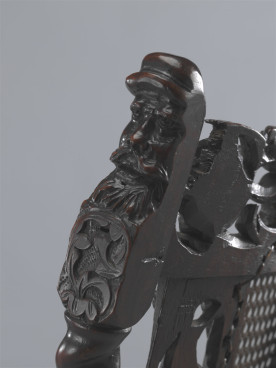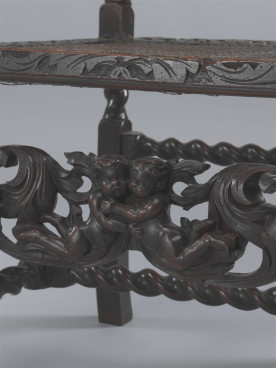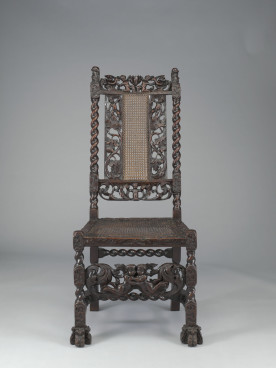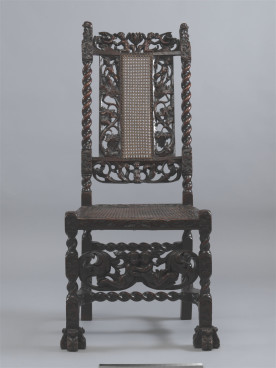Chair, c.1685–1700
Walnut, beech, and cane
The crest, back, and fore-stretcher are carved with cherubs, serpents, and bearded males.
Victor Chinnery Catalogue
Description
A walnut and beech cane backstool, the deeply-carved and pierced cresting-rail centred by a tulip flanked by cherubs and serpents issuing from flower heads, the finials formed as outward-facing bearded male heads wearing hats, the cane panel set within carved and pierced slats with cherubs atop a leafy trail terminating in dragons heads and flanked by twist-turned uprights, the lower back rail pierced and deeply carved with a demi-cherub flanked by foliage, the cane seat set within scroll-carved seat-rails, the sculptural fore stretcher carved as a pair of embracing cherubs issuing foliage between twist-turned legs united by twist-turned H-stretchers and rear stretcher, the front feet now carved with heavy leafy blocks.
English, c.1675-1700.
Dimensions
H: 47in W: 20½in D: 24in
Condition
Generally good, with fine patination. The beech seat rails heavily wormed. The front feet possibly contemporary but associated from another source.
Provenance & References
Ex-coll. Vernay & Jussel, New York.
Purchased Sotheby’s New York, Fine English Furniture and Decorations-Sale 6871, Lot 195, 28 June 1996.
Cf. a similar armchair made for the Earl of Sandwich, Hinchingbroke, illustrated in J Rogers, English Furniture, Sterling Publishing, New York 1959, p. 117, Fig. 62.
Comments
Baroque

